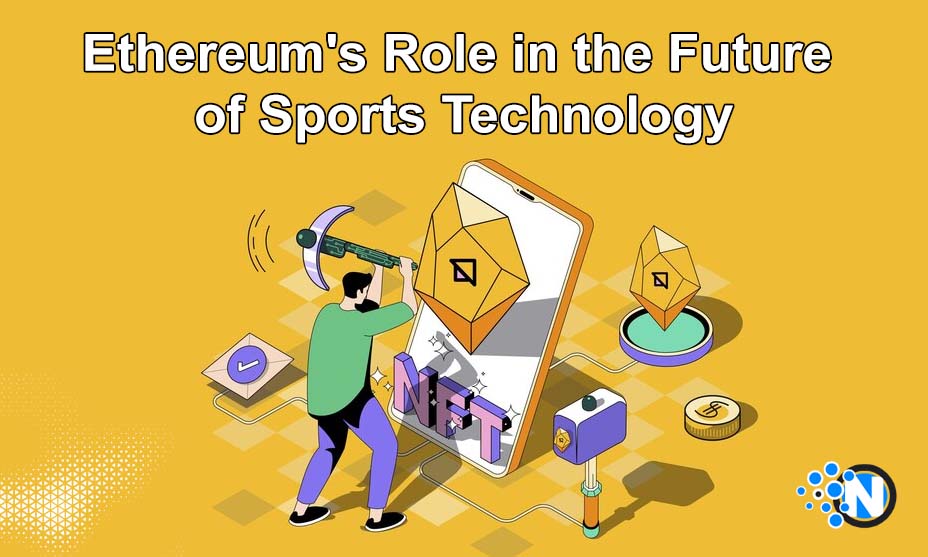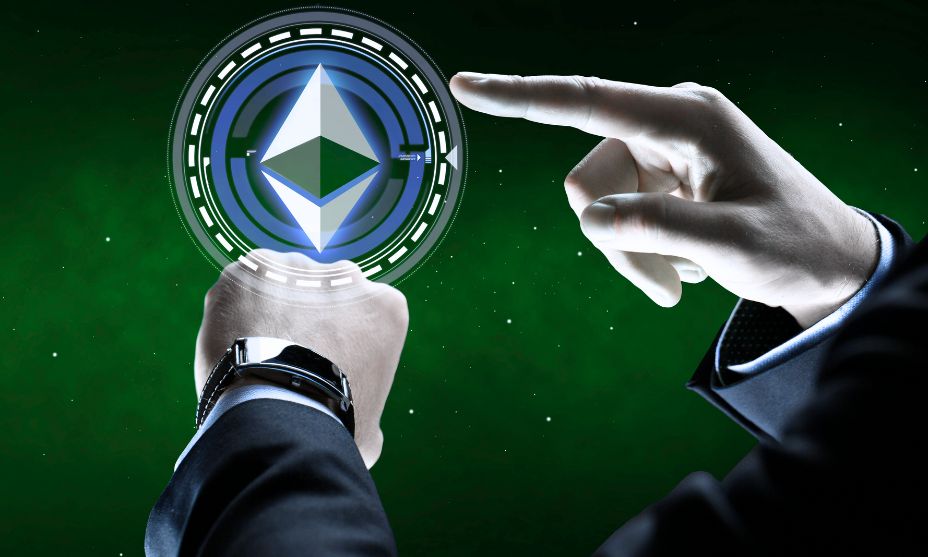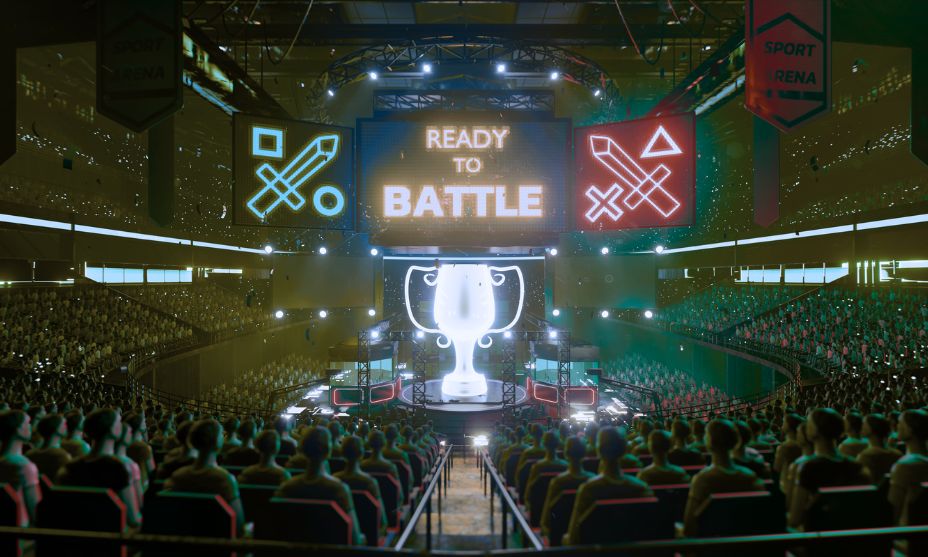Envisioning Ethereum’s Role in Shaping the Future Landscape of Sports Technology

The digital revolution has reshaped many industries, and sports activities aren’t any exception. From overall performance-improving wearables to virtual ticketing, technology is at the vanguard of converting how we devour and engage with sports. Among those emerging technology, Ethereum, a blockchain platform, provides transformative potential. This article seeks to discover Ethereum’s ability to function in redefining the future of sports technology.
What is Ethereum and Why Does It Matter?
Ethereum is an example of a decentralized platform that enables users to make smart contracts and decentralized packages (Dapps). Unlike traditional contracts, the smart contract is self-executed with agreement and immediately written into lines of code. This, now not most effective, guarantees transparency; however, it also reduces the requirements for intermediaries, thereby reducing expenses and increasing performance.
Ethereum differentiates itself from other blockchains mainly through its emphasis on programmability. While other platforms can file transactions, Ethereum’s functionality to run complex programs positions it as a leader in the tech evolution.
Ethereum in the World of Fan Engagement

Tokenized Sports Merchandise and Collectibles
Digital collectibles, referred to as NFTs (Non-fungible tokens), provide fanatics with specific, verifiable, and tradable assets. Imagine owning an exclusive online trading card of your favorite athlete that cannot be replicated, or an authentic highlight reel that only you possess. Using Ethereum, it is possible to create, purchase, and trade unique collectibles.lectibles.
Decentralized Fan Voting
Ethereum can also empower fans by giving them a voice in certain team decisions. Imagine if token holders could vote on jersey designs, halftime show performers, or even charitable initiatives.
Revolutionizing Sports Ticketing
Combating Counterfeit
NFTs have the potential to transform the world of sports ticketing. Since each token has a unique identifier and is verifiable on the blockchain, counterfeit tickets can become a thing of the past.
Dynamic Pricing and Resales
With decentralized platforms, pricing for tickets should be more dynamic, adjusting to real-time calls. Moreover, if a fan wants to resell a price ticket, smart contracts need to make sure that a part of the resale cost is returned to the group or event organizer, developing a fairer resale market.
Enhancing Athlete Contracts and Transfers
Transparent Player Contracts
Ethereum’s smart contracts can offer transparent and tamper-proof player agreements. Contracts can include salary terms, bonuses, and clauses to ensure all parties fulfill their obligations.
Streamlined Transfers
The transfer market, especially in sports like soccer, involves significant sums of money and complex negotiations. Ethereum can simplify this process. Once terms are agreed upon, funds could be transferred instantly and securely.
Tokenizing Athlete’s Earnings
Athletes’ potential future earnings or brand endorsements could be converted into tokens for investment purposes. Fans and investors could buy these tokens, effectively investing in an athlete’s future success.
Sponsorships and Advertising Reinvented
Token-based Sponsorships
Brands could tokenize their sponsorships. Instead of a one-size-fits-all model, tokens could be bought by multiple brands, allowing more local businesses to get involved and diversifying sponsorship portfolios for teams.
Decentralized Ad Platforms
Blockchain could ensure that advertising dollars are spent efficiently. Fans would see more relevant ads, and advertisers would get better insights and transparency into where their money is going.
Training and Performance Analysis via Ethereum
Smart Wearables
In the era of data-driven sports, Ethereum can play a pivotal role. Wearables could feed data into a decentralized database, ensuring that performance metrics are tamper-proof.
Reward Mechanisms
It is possible to reward athletes instantly through smart contracts when they reach specific training milestones. This ensures timely incentives and can push athletes to perform consistently.
E-sports and Virtual Gaming on Ethereum

NFTs in E-sports
Similar to bodily sports activities, e-sports can take advantage of NFTs. Exclusive in-sport assets, like skins or guns, can be traded as NFTs, including a brand-new sales stream for recreation developers.
Decentralized Gaming Leagues
With Ethereum, creating and organizing gaming leagues can be democratized. Players could form leagues, set rules, and distribute prizes all through smart contracts, potentially bypassing traditional gaming corporations.
Challenges and Considerations
As promising as Ethereum’s role appears, it’s essential to address challenges:
Scalability
With increasing users, Ethereum must ensure it can handle numerous transactions without compromising speed or increasing fees.
Environmental Concerns
Ethereum traditionally relies on energy-intensive processes. There’s a pressing need for Ethereum 2.0 and its move to Proof of Stake, which promises to be more energy-efficient.
Regulatory Landscape
The decentralized nature of Ethereum could pose regulatory challenges, especially when it comes to athlete contracts or fan investments.
Smart Contracts in Athlete Contracts
One of the essential metier contributions of Ethereum to the sports industry is the implementation of smart contracts. Smart contracts are self-executing contracts with the terms of the agreement once written into code. In the context of sports conditioning or industries, Ethereum’s smart contracts have the potential to revolutionize athlete contracts, ensuring extra transparency and safety.
Smart contracts can automate bills based totally on predefined conditions, which include overall performance milestones, endorsement deals, or even ticket revenue. This not only effectively streamlines the negotiation and execution of contracts but besides minimizes the risk of disputes, ensuring that each one of the events involved adheres to the agreed-upon terms. This transparency and performance benefit athletes, sellers, and crew proprietors alike, fostering more specific and collaborative sports surroundings.
Tokenization of Athlete Assets
Ethereum’s blockchain technology facilitates the creation of non-fungible tokens (NFTs), which can represent unique digital assets. In the realm of sports, this has led to the tokenization of athlete assets. Athletes can tokenize their achievements, moments of glory, or even personal merchandise, allowing fans to purchase and own a piece of their favorite sports icons. In doing so, athletes have the option to secure their assets and take them into use when needed and feel secure.
Conclusion
While we are only scratching the surface of Ethereum’s potential in sports technology, the possibilities are boundless. From enhancing fan engagement to revolutionizing athlete contracts, Ethereum, with the help of tools like Ethereum 2.0 ProAir, serves as a tool to simplify navigation within the Ethereum network and stands poised to reshape the sports world as we know it. As with all technological evolutions, it is crucial to approach with caution and ethics, ensuring that the sport’s spirit remains intact.




